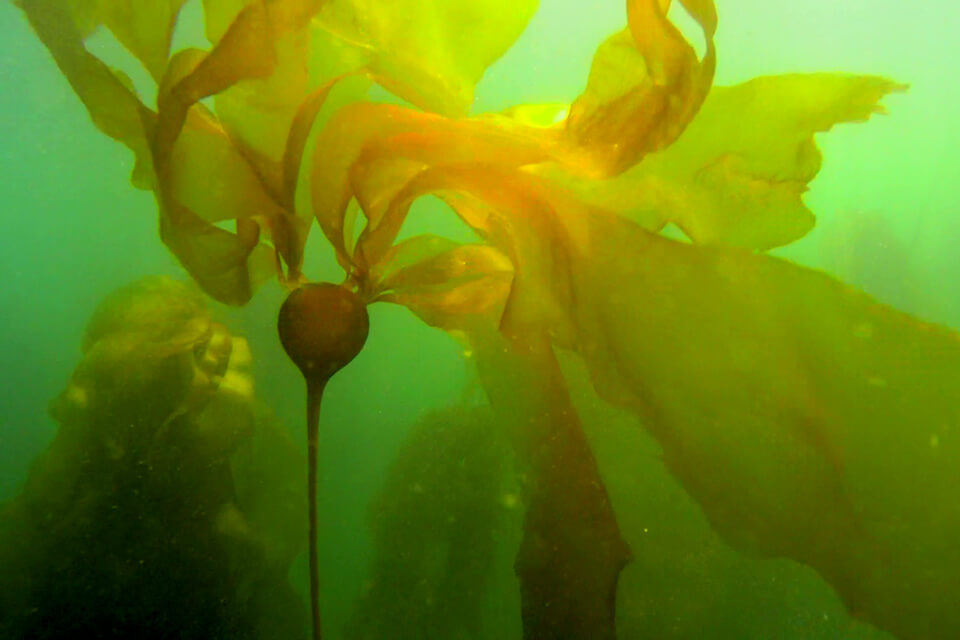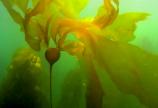Mapping kelp resilience along the BC west coast
- Anne MacLaurin

Along the BC coast, kelp forests are critical habitats for many species such as herring and salmon, but researchers know that kelp is decreasing in some areas of the Pacific Northwest.
Building a cohesive story to map the kelp forests
Using historical charts, Indigenous ecological knowledge and satellite imagery, UVic geographer Maycira Costa and graduate students are building a cohesive story to map the past, present and future of kelp resilience.
Costa is partnering with Indigenous communities and the Pacific Salmon Foundation, Hakai Institute, Fisheries and Oceans Canada, Island Trust Conservancy, Parks Canada, the Council of Haida Nations and the Marine Plan Partnership for the North Pacific Coast (MaPP) to learn more about the resilience of kelp forests.
Using these research methods, we can construct a timeline of kelp resilience.
—UVic geographer Maycira Costa
The historical charts show us the last century’s location of the kelp beds. Researchers can cross-reference this information with that of Indigenous knowledge keepers. Costa explains how satellite imagery can further pinpoint areas where kelp beds are resilient, or where they might decline or disappear, as well as associated changes in ocean conditions.
Kelp is highly vulnerable to ocean conditions, coastal pollution and shoreline development, adds Costa. But kelp beds can also thrive in cool ocean temperatures and can recover under the right environmental conditions.
“We need to know more about kelp decline,” says Costa. “Kelp forests play an important ecological role in the health of our oceans so when we lose kelp beds, it impacts the habitat of many marine species.”

